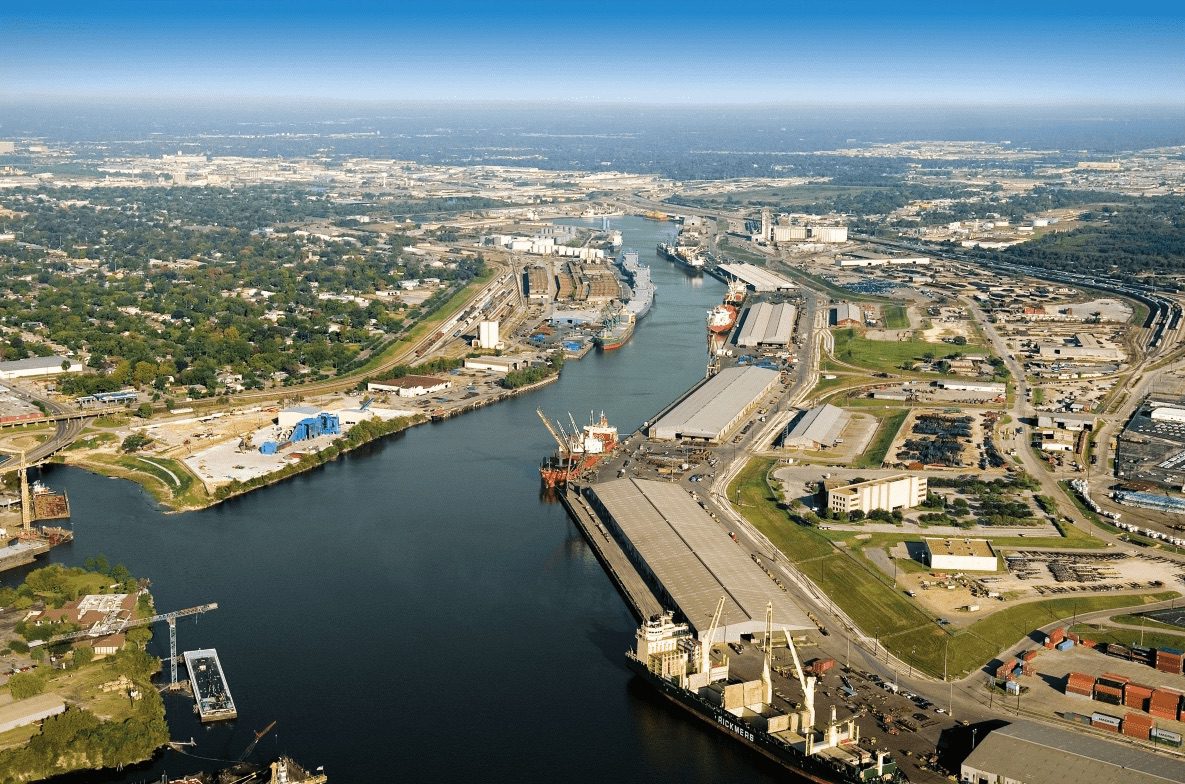File Photo: Port of Houston

HOUSTON (Reuters) – As a global clean-fuel mandate takes effect Jan. 1, testing companies examining newer, low-sulfur marine blends acquired in Antwerp, Belgium; Houston and Singapore have found sediment at levels that could damage the engines of ocean-going vessels.
Routine tests by AmSpec Services and a unit of Lloyd’s Register have raised alarms about safety and compliance just ahead of the new International Maritime Organization (IMO) 2020 standard. Such tests, paid for by suppliers of bunker fuel, have been conducted more frequently this year due to the shift.
The standard prompted an industrywide shift to cleaner burning marine fuel in an effort to reduce coastal air pollution. It requires fuel with less than 0.5% sulfur in ocean-going ships not equipped with emission scrubbers.
The potential hazards were demonstrated in 2018 when some ship operators were forced to pay for costly repairs after buying bunker fuel contaminated by a chemical used in epoxy. That incident affected about 200 vessels, according to an attorney for one operator.
Some 60% of the recipes for making low-sulfur fuel proposed by bunker suppliers near the top U.S. oil port of Houston failed to meet sediment specifications when tested by AmSpec, said Shannon Boudreaux, a fuel blending specialist at AmSpec, in an interview on Tuesday.
Marine fuel suppliers “are struggling with sediments,” Boudreaux said. Producers have continued to tweak their recipes to get the fuels on spec, he said, adding he did not expect a widespread problem for shippers.
AmSpec’s tests for sediment levels increased earlier this year, though some testing had begun in 2018.
Fobas, a fuel testing company owned by Lloyd’s Register, said this month it also found high sediment levels in bunker fuel samples in Singapore, Antwerp and other European ports. The levels exceeded international residue standards.
“We need the supply side to fully contribute to a smooth changeover so that we do not have any incidents due to incompatible fuels,” said Guy Platten, secretary general of the trade association International Chamber of Shipping, in a statement.
Ship operators will have to manage IMO 2020 suppliers with more care, said AmSpec’s Boudreaux. Mixing two or more low-sulfur bunker fuels can raise the sediment levels, producing a residue that could clog and damage an engine.
There was no residue problem from mixing high-sulfur fuels from different suppliers, he said.
“The industry is concerned about these different types of very low-sulfur fuel oil concoctions, that when blended meet specifications, but when mixed together may all of a sudden be off specification,” said Andy Lipow, president of Lipow Oil Associates in Houston.
(Reporting by Collin Eaton in Houston and Jonathan Saul in London; Editing by Richard Chang)
(c) Copyright Thomson Reuters 2019.

 Join The Club
Join The Club











